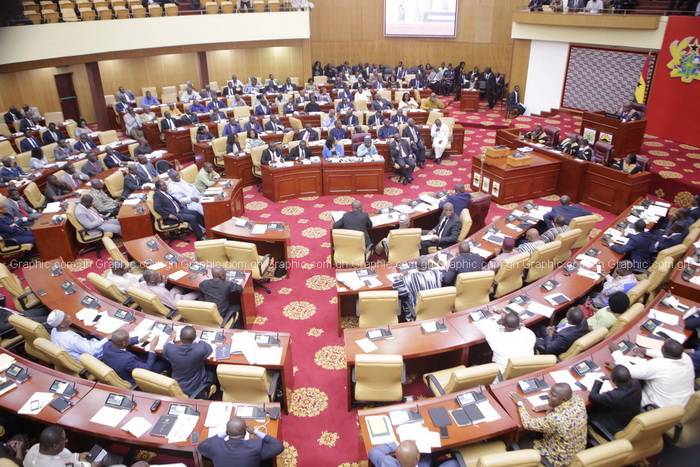
IEA survey recommends education on functions of MPs
A survey by the Institute of Economic Affairs (IEA) is recommending the intensification of public education on the functions and responsibilities of Members of Parliament (MPs) as lawmakers and a check on the excessive powers of the Executive but not agents for development.
The recommendation was the result of a survey conducted by the IEA on the performance of MPs in November/December 2015 across the 10 regions of the country, which revealed that majority of the respondents were not aware of the principal responsibilities of MPs.
Objective of survey
The objective of the survey was to seek the views of Ghanaians on how they perceived the roles and responsibilities of MPs.
It revealed that majority of Ghanaians were not aware of the principal role of their MPs.
According to the report of the survey, this was because MPs kept making campaign promises to undertake development projects, as well as addressing the needs of their constituents.
However, the 1992 Constitution spells out the mandate of MPs as law-making and checking the excessive powers of the Executive.
The report said a significant number of the general public were of the view that the MPs role is either to undertake development projects or assist their constituents.
Read also: 'Democracy will succeed if we build a prosperous nation' - Akufo-Addo
Ratings
Out of about 1,500 respondents interviewed on the survey titled ‘’Public perception of Members of Parliament’’, one-third of the respondents said the performance of the MPs was ‘’poor’’. Only 8.4 per cent of the respondents gave their MPs ‘’excellent’’ performance rating.
Between those two ratings, a little more than a quarter (26.5 per cent) of respondents considered the performance of their MPs as ‘’good’’, while more than one-fifth (22.2 per cent) of them rated the performance of their MPs as “average’’.
According to the report, the overall ratings of the performance of MPs raised some concerns about the Legislature as one of the three arms of government and a very important state institution.
Role of MPs
The report of the survey suggests that MPs may be the cause of their low performance ratings, given the campaign promises they make to undertake development projects and/or address the needs of their constituents.
The report stated that the perception that MPs’ role was either to undertake development projects or assist their constituents could be attributable to the campaign promises made by the MPs and the mixed messages conveyed by the MPs Common Fund.
It said that accounted for a large proportion of respondents (43.1 per cent) who think the role of MPs is to undertake development projects, while a good proportion (31.7 per cent) also believe the job of MPs is to assist their constituents.
It said only a small proportion of respondents appreciated the real job description of MPs, with about 14 per cent of them indicating that the duty of MPs is to debate and make laws, while 3.6 per cent of others think their job is to hold the government accountable.
The report indicated that the results concluded that the respondents did not see their MPs as lawmakers or agents with oversight responsiblities over the Executive but rather, they perceived them as agents of development.
Background
The survey focused on five thematic areas namely: interaction between constituents and MPs, respondents’ voting considerations, educational qualifications of MPs, performance of MPs and ex gratia payments to MPs.
The survey methodology involved the use of a probability sample design to select 1,500 respondents aged 18 and above from the 10 regions of the country. The survey was a follow-up to a similar one conducted by the public policy think tank in the country in May/June 2011 with the view to deepening the country’s democracy.
